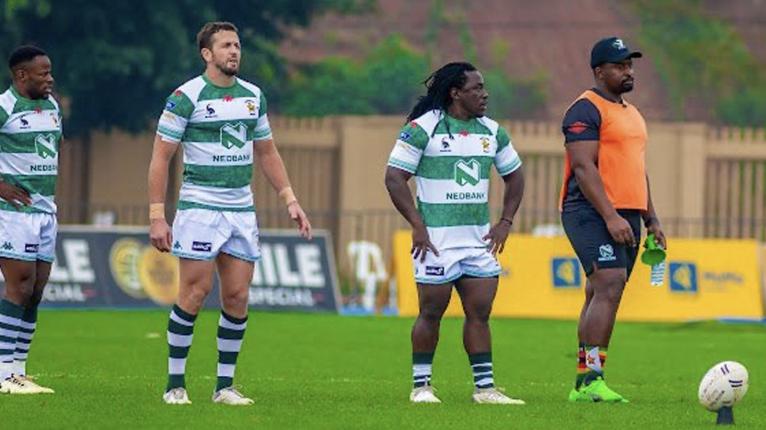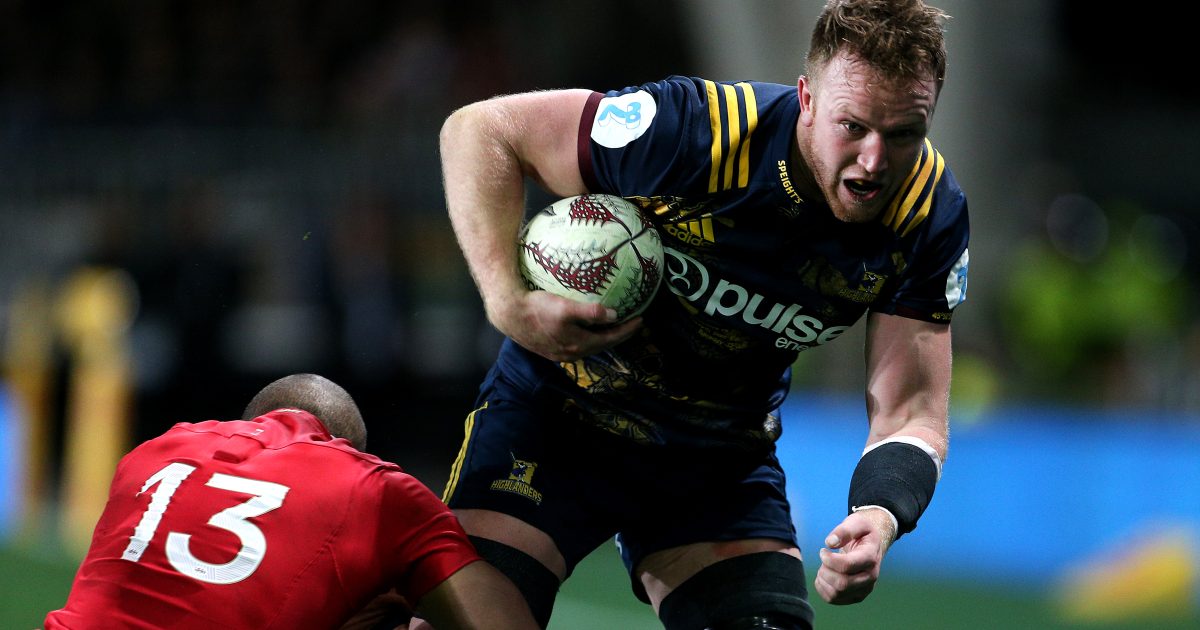Former All Blacks and Wallaby one-cap forwards linked with country switch

Inspired by Zimbabwe’s recent Africa Cup win, more ex-pat pro rugby players look set to join former Western Force captain Ian Prior in helping the Sables in their mission to qualify for Rugby World Cup 2027.
Whilst this year’s Rugby Africa Cup fell outside of the RWC 2027 qualification process, next year’s tournament will count, and if more players of Prior’s calibre and Zimbabwean heritage answer the call, the Sables chances of playing in their first tournament since 1991 will be given a big boost.
RugbyPass understands that centre Kyle Godwin, who plays his rugby for Lyon in France’s Top 14, is ready to commit, and would have made his Test debut for Zimbabwe alongside Aussie-born Prior had his wedding not coincided with the Africa Cup in Uganda.
Despite being born in Zimbabwe’s capital Harare, 32-year-old Godwin attended school in Perth and went on to win one cap for Wallabies against France in November 2016. But he has now served the necessary stand down period under World Rugby’s birthright transfer ruling.
Others have shown interest following Zimbabwe’s brilliant Africa Cup campaign which included wins against host nation Uganda, six-time defending champions Namibia – their first against the Welwitschias for 21 years – and against Algeria in the final.
Former All Blacks and Highlanders loose forward, Gareth Evans, who won his only cap against Japan in 2018, is said to be considering the switch, while 2.01m tall Junior Springbok lock Eli Snyman also appears to be the frame amongst a few others.
It is two years since Evans, 32, last played for the Highlanders, while Snyman, who plays for Benetton Rugby, is still only 28.

“I have played with Kyle for a number of years over here (in Australia), I I was at the Force with him, and he is a quality human and a really class player,” said Prior, a game controlling half-back who never quite made the step up from the Junior Wallaby and Australia A ranks to full Test honours.
“As far as I am aware he is keen and hopefully with the results we have got anyone who is eligible and interested will see there is some real potential to be able to create some history and try and qualify for the first World Cup since ’91.
“We’ve always tried to punch above our weight in Zimbabwe and I guess it makes it more appealing for guys that may be on the fence to see that we are on the right path, we have had a bit of success and the right people on the bus – both from a player point of view and a coaching and administration point of view.”
Australia-born Prior’s family all come from Zimbabwe and the Sables management have been chasing him for a number of years.
Finally, he made his debut, after a calamitous build-up, in front of a partisan home crowd, in the 22-20 quarter-final win against Uganda.
“It’s all bit of a bit of a whirlwind but I knew my time at the Force was finishing up and the opportunity came up for the Sables and the time was right for me contractually and where I was in my career, so I wanted to give it a chance,” he revealed.
“They (Zimbabwe) have approached me in the last three World Cup cycles but when I was younger I had Wallaby ambitions and contractually I couldn’t really do it because it would have made me a foreign player and you can only have a certain amount (in your squad), and as the primary bread winner in a family of two kids, I didn’t want to jeopardise that.
“But when they approached me again at the start of this year, I thought, ‘it is now or never’. In the back of mind, even though it’s a long shot, to qualify for the 2027 World Cup in Australia would be pretty special.”
Prior was then the instigator-in-chief of Zimbabwe’s epic 32-10 win against Namibia, who had until last month superseded them as the best team in the region outside of South Africa in the professional era.
Many of Zimbabwe’s best players ended up being scattered far and wide, with quality individuals like Springbok legend Tendai Mtawarira and England’s Don Armand lost to the cause.
But the Sables’ Africa Cup title win in Kampala – their first since 2012 – has given hope that the current renaissance can lead to World Cup qualification.
Prior, who turns 34 later this month, would love to see the job through and play in a ‘home’ World Cup.
“That would be a long-term goal, whether the body allows it or not is another thing,” he stated.
“I came into this tournament looking to contribute and helping them in whichever way I could, and it gave me a lot more from an experience point of view than I expected.
“The staff and the players were so welcoming to me and for someone who has plied his trade in Super Rugby for 14 years and always had Test ambitions, to represent my heritage nation where my family all come from – I am the only Aussie born in my family – was pretty special.
“I have kept a jersey for my mum and dad to frame, I know it means a lot to our family. My parents moved out to Australia in ’87, I was born in 1990, and we moved back in ’93 and we lived there for seven or eight years before moving back to Australia.
“I hadn’t been back to Harare for 24 years since I left, so it was really nice to be able to do that. I drove past our childhood and the neighbours I grew up next to were still there and I had dinner with them.”
The Sables move up to 28th in the World Rugby Rankings after their successful 2024 title run. This is Zimbabwe’s highest ranking since 2015 pic.twitter.com/znWBkrZ40r
— Kyros Sports (@kyrossports) July 29, 2024
Prior has a Super Rugby winner’s medal from his time at Queensland Reds, as well as being one of only three Force players to make over 100 appearances, and spent six months overseas with Harlequins in England, so not much has passed him by.
However, Prior admits he was taken aback by the quality of the players around him in the Zimbabwe squad.
“The calibre of athlete really surprised me. Some of the talent and athleticism that I got to see amongst some of my teammates that aren’t not full-tine pros really astounded me.
“All I had to do as an old boy was to get the team to play in the right areas and let those athletes do the rest. Rugby can be a simple game and also as complicated as you want it to be, but if you are able to play in the right areas, win your set piece and take your chances, the rest looks after itself.
“I have been lucky to play around 130 Super Rugby games (Force, Reds and Brumbies), Australia A, and I plied my trade at Harlequins for a short period of time, after the Force got removed. So it is a really good opportunity to pass on that experience and give back.”
Reflecting on his Test bow against Uganda, and the history-making win over Namibia, Prior added: “It was a tough first up game, which we knew it would be, against Uganda. A few curve balls were thrown our way in the lead up to the game. Our lunch was moved to the stadium, and we weren’t informed as far as I am aware, but luckily our management managed to sort some food out, and we made do like all great Zimbabweans have had to do growing up, they’ve had to adapt and improvise.
“Our bus arrived with no fuel so we had to fill up and we were a bit late getting there, and it was one of the most hostile crowds that I have been in a game of rugby in, being against the host nation, and it was a tight game, 22-20.
“Then coming up against Namibia. They have had the wood on us since 2003 so to get a win over them gave the guys a lot of confidence. Guys like Hinton Mudariki and Simba Mandioma, that have played nearly 50 Tests but have never been able to beat them, you could tell how much to meant to them to finally beat them.”
Prior missed out on the final, a 29-3 win over Algeria, as he had to fly home to attend the Force’s end-of-seasons awards night, in which his service to the team and Western Australian rugby was celebrated.
Like the build-up to the Uganda game, the journey wasn’t without its hiccups.
“I left after the game on Wednesday and I had a 40-hour journey back and I arrived a few hours before the awards ceremony. There were a couple of delays as there was some bad weather around Kenya, we couldn’t land so we had to go via Tanzania and a few other places, so that made it exciting and anxiety ridden at the same time, but I made it back just time for the awards night.
“I’ve been here (at the Force) for 11 years and captain for the last five so it was a nice way to be able to say thank you to the people who have been involved with the club and stepped in when we were removed from Super Rugby and kept us alive.”




































































